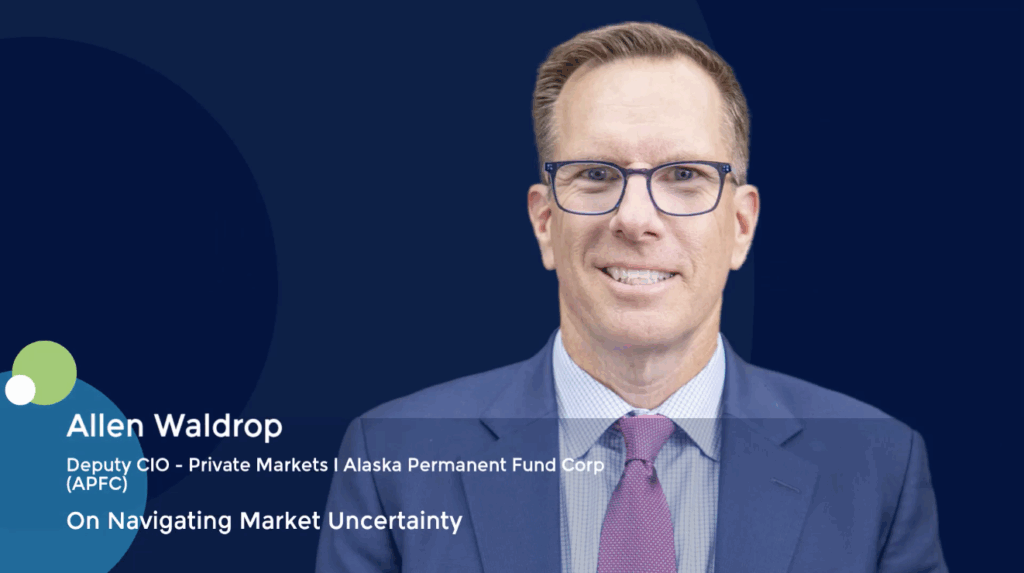LPs in Asia: Hong Kong’s VMS Group nurtures institutional ambitions
The family office-turned-asset manager is formalising its PE operation by offering clients fund exposure as well as unstructured streams of direct deals. Joint venture funds and stronger in-house capabilities are core to this approach
VMS Group’s 17-year journey from zero to around USD 3bn in private equity assets under management (AUM) reflects an evolution in how family offices and high net worth individuals (HNWIs) – still its primary client base – want to access alternatives.
What began as a series of intermittent deals, primarily at the pre-IPO stage, that aggregated client commitments into standalone vehicles has become a more structured offering comprising direct investments and partnerships with select GPs that bring domain expertise. Most recently, VMS teamed up with Esther Wong of 3Capital to launch a joint venture fund focused on artificial intelligence (AI).
“Part of the DNA of our in-house PE strategy is to discover future industry leaders, give them capital, and support their growth,” said Elton Cheung, who joined VMS as a partner three years ago after serving as China COO for Morgan Stanley and as CEO of JIDA Capital (now Albamen Capital Partners).
“We are applying the same mindset to fund management, backing entrepreneurs as they build empires. There is more value in helping them go from zero to one than from one to one thousand.”
Hong Kong-based VMS is also notable for its continued bullishness regarding China. As many investors traditionally focused on the country divert their attention and resources elsewhere, VMS is essentially doubling down – through renminbi-denominated as well as US dollar strategies.
“We have a few more experts on our team there,” Cheung added. “We believe that the money will go back to China. Opportunities will continue to arise in China; it’s just a matter of how soon. We want to enter the market earlier rather than join the big crowd when the market is hot again.”
Spot deals to partnerships
VMS was formed in 2006 with support from the Cheng family, owner of Hong Kong conglomerate Chow Tai Fook Enterprises. Over time, AUM has grown – it has USD 4.3bn across all asset classes and has invested in 150 companies to date, of which about 50 are active deals – and the client base has broadened. VMS has served over 25 groups, with a couple of wealthy families serving as anchor LPs.
Cheung accepts that “sometimes people call us a multi-family office because we do work with individuals, including some from wealthy families,” but he doesn’t care for the designation. VMS is positioned as an alternative investment firm, with self-developed products in private equity, hedge funds, real estate, and private debt, and the operational flexibility to work with all kinds of clients.
On establishing a dedicated private equity team, the firm not only pursued direct deals but also made LP investments to funds. These were “very small” commitments to China-focused managers, according to Cheung, using feeder fund-like structures. VMS would source an allocation to a fund and then market the opportunity to its client base.
Most GPs were well-known names. Under what it describes as “strategic partnerships,” the firm explored technology, media, and telecom (TMT) and healthcare with Legend Capital in 2014, deep tech with KPCB in 2018, and TMT and healthcare with Northern Light Venture Capital in 2018. In addition, VMS was one of the first external LPs in Legend Star, an incubation arm of Legend Holdings.
Cheung noted that such “soft cooperation” was beneficial to overall asset allocation, offering an element of diversification on top of in-house private equity products launched by VMS. Then there were the networking effects: these relationships generated industry insights and sometimes facilitated the sourcing of deal flow that might otherwise have been overlooked.
Joint venture funds – typically where VMS plays the role of incubator or anchor investor – are intended to take it a step further. The first of these arrived in 2016 in conjunction with Princeville Capital, a US-based venture capital firm established by two ex-Deutsche Bank technology bankers.
VMS, looking to satisfy an interest in global growth-stage software and consumer internet investment, reached out intending to participate in a traditional GP-LP structure. They decided on a joint venture instead, with Princeville taking charge of investment and VMS seeding its global technology fund.
According to Cheung, VMS was looking to diversify its offering after nearly a decade of China-focused investment and at a time when “the China market was very hot.” He declined to give more detail on the relationship, simply stating that “[there are] co-investment opportunities.”
As of January, the fund was said to be marked at a 2.5x-3x multiple, having backed the likes of European used car trading platform Auto1 Group, US online pharmacy supplier Blink Health, and German travel agent Dreamlines. There are also a few Chinese companies, including e-commerce logistics player Cainiao, marketing specialist Cue Holdings, and B2B infant products marketplace Hipac.
“In these partnerships where we are basically responsible for fundraising, we can help underlying clients diversify from China-focused products managed by our in-house PE team, incubate new managers, and also share some of the economics,” Cheung added.
Global mindset
Two years after the Princeville alliance, VMS collaborated with Panacea Venture, a globally minded healthcare-focused spinout from KPCB’s China team. That fund has been followed by another featuring 3Capital, which reached a first close of nearly USD 80m last December. It will invest in early-stage AI start-ups globally, especially those involved in AI infrastructure and applications.
VMS is working with a team led by Wong, who previously spent six years at Hong Kong-listed AI giant SenseTime. The two parties first met when VMS participated in SenseTime’s Series D and Series D extension in 2020. For Wong, the tie-up made strategic sense.
“As a first-time fund, I don’t want it to be too big,” she explained. “Apart from having an anchor investor, I want to spend more time finding good founders and incubating their companies using the resources I have accumulated over the years through my industry cluster.”
VMS had some exposure to AI, but Cheung believes “technical industrial specialists” are needed to source the next wave of AI opportunities. Wong, who has been investing in the space since 2018, backing companies such as chip designers Arm China and DapuStor and autonomous driving technology developer WeRide, was seen as a better fit than any in-house investment capabilities.
The top-down approach to identifying areas of high investment potential applies to all asset classes, he added. VMS is currently considering its options in hedge funds and private equity secondaries.
The partnerships with Princeville and Panacea have taken the firm into North America and Europe. The 3Capital AI fund has to date backed two start-ups in Southeast Asia and one in the US. Wong expects to be active in Western markets because that’s where most of the talent is located, noting that for speedy commercialisation it might be best to start outside China.
From a macro perspective, VMS favours Vietnam for its growth, young demographics, and educated workforce as well as for similar social and political characteristics to China. The firm has been active in the country since 2015 when it led the development of a large luxury resort project. The first phase – of five in total – cost more than USD 1bn. VMS is considering other investment opportunities in Vietnam.
“Are we going to build a team of investment managers focused on Southeast Asia? We will wait, watch, and see how it goes. Again, the top-down approach applies. If we are not geographically diversified enough, we will find that missing geography,” Cheung said.
Elements of the joint venture strategy featured in the development of the China-focused in-house private equity team as well. The firm’s debut blind pool vehicle, raised in 2015, was called VMS Legend Investment Fund I, with VMS effectively borrowing the Legend Capital brand name.
This was a deliberate marketing ploy intended to help VMS navigate what he knew would be a challenging fundraising environment, according to Cheung. The USD 100m fund included an LP commitment from Legend Capital, and the VC firm shared some of the fund-level economics.
When a second fund closed on USD 350m three years later, it was a solo effort. VMS largely drew on commitments from Asia-based investors, with family offices and corporates well represented.
The next chapter
Buoyed by a portfolio that features Pony.ai, Pharmaron, Ozon, and New Horizon Health – VMS set its sights higher for Fund III.
This started in 2021 with upgrades to the in-house PE team. Last year, the firm recruited Jianming Zou, who previously spent 15 years as a partner at Chinese GP New Horizon Capital, to lead it. Kevin Gong, another New Horizon alumnus, was recruited to serve as co-head of technology and consumer coverage. The private equity team now numbers 18 out of an overall headcount of around 80.
In mid-2023, Zou told Mergermarket that Fund III would launch before year-end with a target of USD 300m. The mandate was to make early and growth-stage investments in technology and healthcare, writing cheques of USD 20m-USD 30m, though co-investment could take capacity to USD 100m.
Six months later, the AI fund was earmarked as the strategic priority, with Fund III pushed to the end of 2024. Cheung said that VMS had “consciously delayed” the project, mindful of the difficulties encountered by Asian managers on the fundraising trail.
He added that the firm could afford to be patient, noting that – unlike most GPs – direct investments channelled through single-asset vehicles or dedicated co-investment programmes still account for 85% of private equity AUM. “We don’t need to face that risk because of our close client relationships. We can invest on a single-deal basis,” Cheung explained.
Nevertheless, the long-term goal is to evolve into a more institutional-style asset manager, which means more traditional blind pool funds. This is reflected in the renminbi strategy, with VMS poised to launch its debut local currency vehicle in mid-2024 in partnership with a local firm. Early-stage VC and late-stage control deals across healthcare, consumer, and technology are on the agenda.
Ambitions to diversify the client base play into this as well. VMS has dispatched staff to London from where they will make forays into Europe and the Middle East. Family offices and HNWIs are the initial focus, but ultimately, the firm hopes to include a broader subset of investors. Cheung recognises that to do this, VMS must be more institutional in process and product type.
“We want to build a more sustainable business,” he said. “There are efficiencies in the fund structure: you are sitting on a large pocket of dry powder that is deployed at your discretion and under your authority, which means you can act faster. Our target clients understand this product.”











